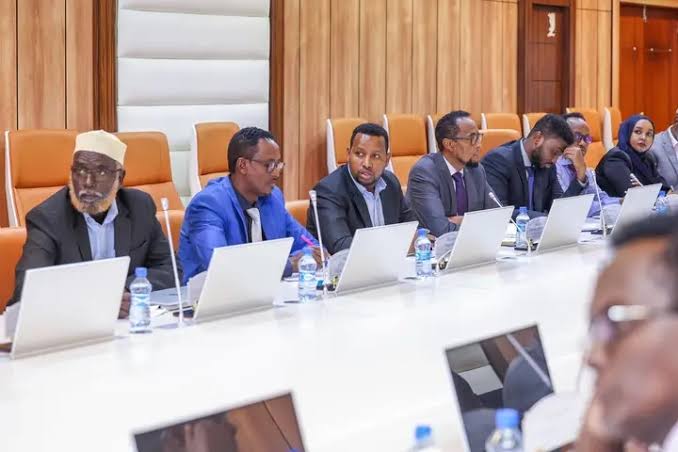Facebook Twitter (X) Instagram Somali Magazine - People's Magazine
Somalia’s Second Deputy Prime Minister, Abdissalam Abdullahi, recently chaired the inaugural meeting of the National Trade Facilitation Committee (NTFC) to explore the nation’s potential accession to the World Trade Organization (WTO). This milestone marks a crucial step in Somalia’s efforts to integrate into the global trade system and improve its economic standing.
The NTFC, established to enhance trade efficiency and promote Somalia’s economic policies, focused on the economic opportunities and challenges associated with WTO membership. The committee emphasized that joining the WTO would grant Somalia expanded market access, improve trade relations, and attract foreign investment essential for economic growth.
During the meeting, Deputy Prime Minister Abdullahi underscored that WTO accession aligns with the Somali government’s broader economic reform strategy. This agenda prioritizes trade liberalization, transparency in trade procedures, and the reduction of barriers to international commerce, ultimately positioning Somalia for better trade negotiations and stronger ties with the global economy.
The discussions highlighted the significant benefits WTO membership could bring to Somalia’s key industries, such as agriculture, fisheries, and manufacturing. By joining the global trade body, Somalia could benefit from preferential trade agreements and gain access to technical assistance programs aimed at building capacity and strengthening the nation’s trade infrastructure.
Beyond economic gains, the NTFC also addressed the legal and institutional reforms required for WTO membership. Key areas identified for improvement included aligning Somalia’s trade laws with WTO standards, modernizing customs procedures, and ensuring the enforcement of fair trade practices. These reforms aim to create a more business-friendly environment while safeguarding the rights of local industries and traders.
The NTFC comprises representatives from various government bodies, trade associations, and private sector stakeholders. It will continue working on a comprehensive strategy for Somalia’s WTO accession, including consultations with key stakeholders, drafting essential legal frameworks, and collaborating with WTO experts to ensure compliance with membership criteria.
Somalia’s path to WTO membership represents a major step in its ongoing efforts to rebuild its economy and strengthen its international standing. If successful, the accession could serve as a catalyst for economic growth, job creation, and improved living standards for Somali citizens. Enhanced participation in global trade frameworks would also promote stability and reduce economic vulnerabilities caused by reliance on limited markets.
The government’s push for WTO membership is part of a broader strategy to modernize Somalia’s economy after decades of conflict and instability. The NTFC’s efforts, coupled with international support, aim to equip Somalia with the tools necessary for sustainable development and global market competitiveness.
The Somali government’s proactive engagement with international trade bodies demonstrates its commitment to economic transformation. As the nation works toward full WTO membership, it hopes to create a more diversified economy capable of competing on the global stage.

